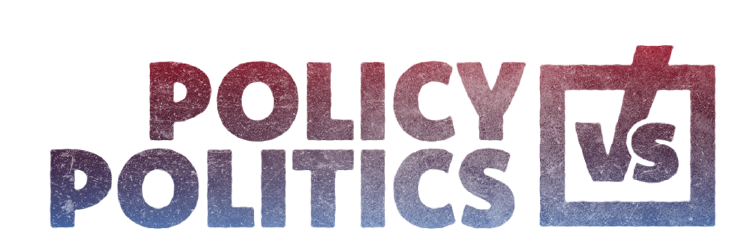In today’s society, we are constantly bombarded with information from various media outlets, making it difficult to differentiate fact from fiction. That’s why unbiased news and journalistic objectivity are more important than ever; the ability to present information without any personal bias allows readers to form their own opinions and make informed decisions.
Discover the difference between unbiased news and journalistic objectivity, the challenges of each, and why they are consequential in maintaining a free and fair press.
The Importance of Impartiality
The press, and related media, serve as a cornerstone of democracy by providing accurate and unbiased information to the public. Impartiality is crucial to ensuring that the media remains an independent and trustworthy source of information, free from political or ideological bias.
Unbiased News
Unbiased news describes the broadcasting of information without any ideological or political bias, reporting the facts in a way that is objective, neutral, and without any hidden agenda. The benefit of unbiased news is that it allows the public to make more informed decisions based on accurate and reliable information. Similarly, it helps to ensure that news stories are presented in a fair and balanced manner that does not attempt to exploit or manipulate public opinion.
To achieve unbiased news reporting, journalists must adhere to a strict code of ethics, which includes verifying facts and corroborating sources, avoiding any conflicts of interest, and reporting all sides of any given issue. It also requires journalists to remain neutral and avoid taking sides in political or ideological debates. This can be challenging for both individual journalists and major media networks, especially in a polarized media landscape where popular news outlets often cater to specific audiences with their own agendas.
The importance of unbiased news has become increasingly apparent in recent years, especially with the rise of fake news and the speed at which disinformation spreads. Unfortunately, the dissemination of false information can have serious consequences; not only does it sow mistrust and division, but it also undermines the foundations of democratic institutions.
In publishing unbiased news, journalists can help combat the spread of fake news and ensure that the public can more easily encounter accessible, accurate, and reliable information.
Challenges of Unbiased News
While unbiased news arguably is the ultimate goal for a majority of journalists, there are numerous challenges in achieving complete impartiality. One of the biggest challenges is the human factor. As fallible individuals, journalists naturally have their own beliefs and biases that can inadvertently impact their reporting. Similarly, media outlets are owned by corporations or individuals who may have their own agendas that can also directly or indirectly influence content.
Another challenge is the 24-hour news cycle. The pressure to be the first to break a story can lead to rushed reporting and a lack of fact-checking, potentially leading to the dissemination of false information. In some cases, news outlets may even intentionally report misleading or false information to sensationalize a story and attract more viewers or readers.
Social media has also introduced challenges, as platforms are often unregulated, causing users to unintentionally spread false information or propaganda. In some cases, social media platforms themselves may have their own biases or agendas, which can influence the content that is promoted on their platform.
Finally, there is the challenge of audience bias. In today’s polarized political climate, many readers and viewers seek out news sources that align with their own beliefs and values and may dismiss or ignore sources that present a different perspective. This can create a demand for biased reporting, as media outlets may feel pressure to cater to a specific audience to maintain their viewership or readership.
Despite these challenges, unbiased news is critical to maintaining the integrity of journalism and requires a dedication to transparency, fact-checking, and objectively presenting the information.
Journalistic Objectivity
Journalistic objectivity is closely related to unbiased news. It structures journalistic reporting in such a manner that it is free from personal bias or opinion, positioning that journalists should avoid expressing their own personal opinions or beliefs about a story or situation and instead focus on presenting the facts in a neutral and balanced way.
While the idea of objectivity in journalism has certainly faced critiques, it remains a fixed aspect of journalistic ethics and plays a significant role in defining the fourth estate as an institution, certainly one that exists apart from government and large interest groups.
Journalistic objectivity allows for the accurate and fair reporting of news and information. When journalists strive for objectivity, they attempt to minimize their own biases and present information in a neutral and impartial manner, ensuring that the public is both informed with accurate and truthful information and not influenced by the opinions or agendas of the media.
Objectivity also encourages accountability and transparency throughout the news industry, holding journalists to the high standards of complete accuracy and impartial fairness. This aspect is paramount to journalistic objectivity in democratic societies where access to unbiased news is essential for informed decision-making and public discourse.
Challenges of Journalistic Objectivity
In today’s media landscape, where opinions and commentary are increasingly valued over hard news, maintaining journalistic objectivity can be challenging. Many news outlets have even turned to opinion-based programming as a way to attract consumers, as objective reporting can often be perceived as dry or unengaging, which can lead to a lack of interest from audiences.
This can also lead to the sensationalization of stories or the presentation of facts in a way that supports a particular viewpoint, also known as selective reporting. Similarly, the prevalence of “fake news” throughout social media can lead to an inadvertent spread of misinformation, as it can be difficult to verify the accuracy of information.
Ultimately, it is important for journalists to remain committed to objectivity, even when reporting on controversial or polarizing issues. They may face several challenges, including personal biases, the rise of misinformation, demands for engaging storytelling, among others, but overcoming these challenges is crucial for maintaining the credibility of journalism and ensuring that audiences can trust the news they consume.
Conclusion
Impartiality is essential to the credibility of journalism.
Unbiased news and journalistic objectivity are both crucial in maintaining a free and fair press.
The public relies on the media to provide accurate and reliable information, and journalists have a responsibility to report on stories in a fair and balanced way.
In today’s media landscape, fake news and disinformation are rampant. That is why it is more important than ever for journalists to uphold the highest standards of impartiality and objectivity.
By doing so, they can help to promote a healthy and informed democracy.
Learn more about the importance of unbiased news and get involved at PolicyvsPolitics.org.

